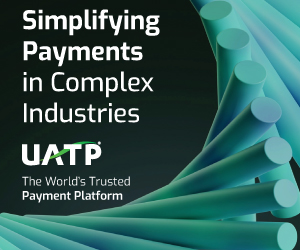
The definition of Distribution varies by industry, but the most common is merchandising commodities to get them into the hands of consumers. For the travel industry, we once again have to go back in time to understand where we are heading.
The Stone Age of Airline Tickets
In 1974 I joined Trans World Airlines as a reservations agent in New York City, and ours was the first training class to use the computer (PARS). In decades prior, the option for passengers to get their ticket was simple: You picked it up at the airport on the day of departure. Once we were computerized, we had additional options besides tickets by mail, including Prepaid Ticket Advice and, for larger corporate accounts, Teleticket Machines.
Airlines saw the inefficiency of such last-minute ticket “distribution,” so they opened up City Ticket Offices in major cities where you could get on line (not “online” – that comes decades later) and pick up your ticket in advance. However, instead of paying rent for a ticket counter at the Waldorf Astoria, the airlines found it more efficient to pay commissions to travel agents to take on the burden of issuing tickets. In addition, they knew that many agencies would “preference” the airline that paid the best commissions.
In addition to TWA, American, Delta, Eastern and Pan Am had their own carrier reservations systems installed at travel agencies and corporate accounts, and Eastern was the first to offer multi-GDS content. With these systems, travel agencies could book flights, hotels and car rentals, and issue the airline ticket. Further enhancements included satellite ticket printers, a (paper) ticket machine the airlines installed in branch offices of agencies and corporate accounts, widening the distribution network.
Since each major airline owned their own CRS, the federal government saw inherent bias in airline ticket distribution and stepped in to force carriers to give up ownership and provide more unbiased content. The new acronym of the decade was GDS: Global Distribution System. In this financial model, suppliers (airlines, hotels, car rental companies) all paid a fee to the GDS to have their content displayed and sold. The GDS companies in turn, paid “incentives” to the larger travel agencies (they weren’t called TMCs yet) to use their GDS. This created two new distribution costs for the airlines on top of agency commissions.
The Evolution of E-Tickets
Southwest Airlines was the first to offer “E-Tickets” back in 1994 and they quickly recognized the efficiency of eliminating paper tickets. By coincidence or otherwise, tickets issued from an airline website eliminate agency commissions and GDS payments, but we will save that discussion for later (except to note that, once commissions went away and travel agencies started charging fees, they re-branded as travel management companies, or TMCs).
By 1997, IATA had adopted global standards for e-ticketing, but it took until 2008 for them to announce that all ticketing would be electronic. At the same time, the industry agreed on a barcode standard for mobile boarding passes, rendering the entire process paperless.
The next evolution came in the early 2000s, with what was then called Self Booking Tools. These tools transferred the “work” involved in making a booking from the travel agency to the corporate account (the traveler or the travel arranger). Outtask came to market circa 2002, and by 2006, Concur had bought it and renamed it Cliqbook. At the same time the new acronym was born: OBT for Online Booking Tool.
The transfer of labor costs to the corporate client resulted in lower “transaction fees” paid to the TMC. However, although the burden shifted away from the TMC, for airlines and hotels the compensation/remuneration model remained intact.
Suppliers still paid the GDS to display and sell their content and paid the TMCs for “distribution.” This despite the fact that 80 percent of the bookings are booked online and 80 percent of that 80 percent is touchless (fast math is 2/3). Still, the TMCs were compensated for being in the middle between the supplier (airline, hotel) and corporate account, and the GDS still earned income since OBTs were all connected to the GDS in order to get supplier content.
Now Comes the Revolution
The more recent and accurate definition of distribution for the airline industry is to encompass their “Cost of Sales.” Those costs include payments to TMCs (commissions, overrides, soft dollars), GDS companies for content, and credit card companies for their merchant fees. Now we are seeing some new developments in Australia and the US where carriers are providing a “direct channel” and starting to use block chain for payment of tickets. The potential to eliminate legacy distribution costs is significant, but before they break the glass ceiling, the airlines need to make sure that their TMC partners and corporate clients don’t get injured by the falling shards.
The tidal wave of New Distribution Capability was predictable as it started its slow-roll a decade ago. When American Airlines brought NDC to the US, they telegraphed their position well in advance. NDC is not “New.”
The best advice I can offer as a consultant (for free) is to anticipate the challenges ahead as NDC content increases its share of corporate bookings, and additional airlines follow soon (that’s a predictable pattern). Travel managers and procurement executives need to have collaborative discussions with the TMC, airlines (one at a time), and internal stakeholders to ensure the credibility of content across all channels, both managed and consumer.











